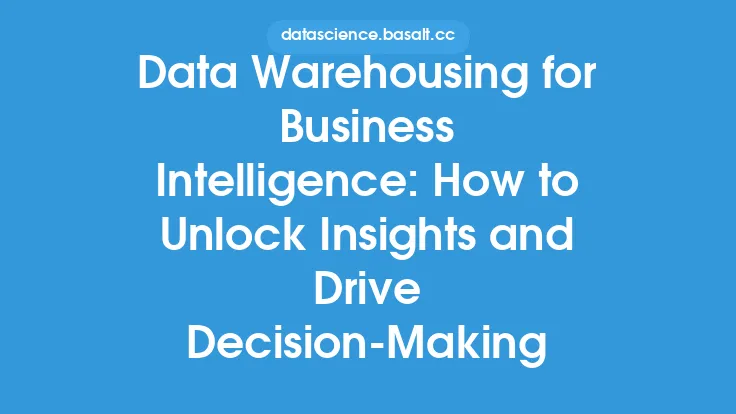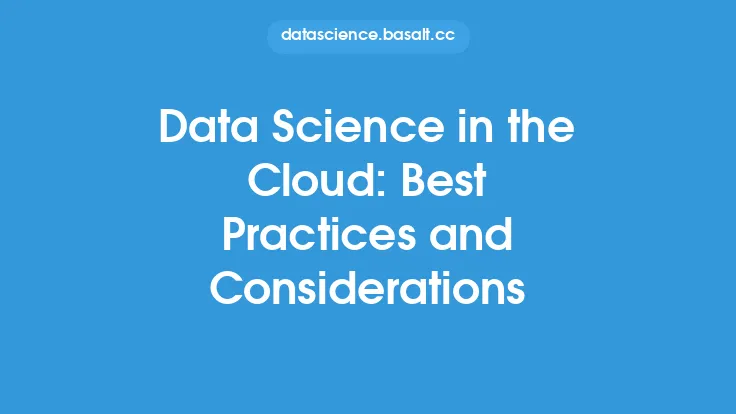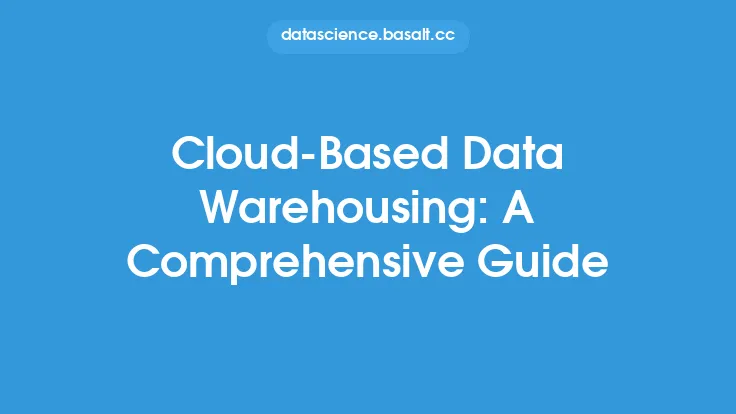The advent of cloud computing has revolutionized the way data-intensive applications are developed, deployed, and managed. By providing on-demand access to a shared pool of computing resources, cloud computing enables organizations to quickly scale up or down to meet the needs of their applications, without the need for expensive hardware upgrades or new equipment purchases. This flexibility, combined with the cost savings and increased agility that cloud computing provides, has made it an attractive option for organizations looking to support data-intensive applications.
Introduction to Cloud Computing for Data-Intensive Applications
Cloud computing for data-intensive applications involves the use of cloud-based infrastructure, platforms, and software to support the processing, storage, and analysis of large amounts of data. This can include everything from data warehousing and business intelligence to scientific simulations and data analytics. By leveraging the scalability and flexibility of the cloud, organizations can quickly deploy and manage data-intensive applications, without the need for significant upfront investments in hardware or software. Additionally, cloud computing provides a number of benefits that are particularly well-suited to data-intensive applications, including on-demand scalability, high-performance computing, and advanced data analytics capabilities.
Benefits of Cloud Computing for Data-Intensive Applications
There are a number of benefits to using cloud computing for data-intensive applications. One of the most significant advantages is the ability to quickly scale up or down to meet the needs of the application, without the need for expensive hardware upgrades or new equipment purchases. This scalability, combined with the cost savings and increased agility that cloud computing provides, makes it an attractive option for organizations looking to support data-intensive applications. Other benefits of cloud computing for data-intensive applications include:
- High-performance computing: Cloud computing provides access to high-performance computing resources, including powerful processors, high-speed storage, and advanced networking capabilities.
- Advanced data analytics: Cloud computing provides a number of advanced data analytics capabilities, including machine learning, natural language processing, and data visualization.
- On-demand scalability: Cloud computing enables organizations to quickly scale up or down to meet the needs of their applications, without the need for expensive hardware upgrades or new equipment purchases.
- Cost savings: Cloud computing provides a number of cost savings, including reduced hardware and software costs, lower energy costs, and decreased maintenance costs.
Challenges of Cloud Computing for Data-Intensive Applications
While cloud computing provides a number of benefits for data-intensive applications, there are also a number of challenges that organizations must consider. One of the most significant challenges is the issue of data security and compliance. When using cloud computing for data-intensive applications, organizations must ensure that their data is properly secured and compliant with relevant regulations and standards. Other challenges of cloud computing for data-intensive applications include:
- Data migration: Migrating large amounts of data to the cloud can be a complex and time-consuming process, requiring significant planning and resources.
- Network bandwidth: Data-intensive applications often require high-speed networking capabilities, which can be a challenge in cloud computing environments.
- Vendor lock-in: Organizations must be careful to avoid vendor lock-in, which can make it difficult to move applications and data between different cloud providers.
- Performance optimization: Optimizing the performance of data-intensive applications in cloud computing environments can be a challenge, requiring significant expertise and resources.
Technical Considerations for Cloud Computing for Data-Intensive Applications
There are a number of technical considerations that organizations must take into account when using cloud computing for data-intensive applications. One of the most significant considerations is the choice of cloud provider, with options including Amazon Web Services (AWS), Microsoft Azure, Google Cloud Platform (GCP), and IBM Cloud. Each of these providers offers a range of services and capabilities that are well-suited to data-intensive applications, including computing, storage, networking, and analytics. Other technical considerations include:
- Data storage: Organizations must consider the type of data storage that is best suited to their needs, with options including object storage, block storage, and file storage.
- Computing resources: Organizations must consider the type of computing resources that are best suited to their needs, with options including virtual machines, containers, and serverless computing.
- Networking: Organizations must consider the networking capabilities that are best suited to their needs, with options including virtual private networks (VPNs), software-defined networking (SDN), and network functions virtualization (NFV).
- Security: Organizations must consider the security capabilities that are best suited to their needs, with options including encryption, access controls, and identity and access management (IAM).
Best Practices for Cloud Computing for Data-Intensive Applications
There are a number of best practices that organizations can follow to ensure the successful deployment and management of data-intensive applications in cloud computing environments. One of the most significant best practices is to carefully plan and design the application, taking into account the scalability, performance, and security requirements of the application. Other best practices include:
- Monitoring and optimization: Organizations should continuously monitor and optimize the performance of their data-intensive applications, using tools and techniques such as logging, metrics, and tracing.
- Security and compliance: Organizations should ensure that their data-intensive applications are properly secured and compliant with relevant regulations and standards, using tools and techniques such as encryption, access controls, and IAM.
- Cost management: Organizations should carefully manage the costs associated with their data-intensive applications, using tools and techniques such as cost estimation, budgeting, and cost optimization.
- Vendor management: Organizations should carefully manage their relationships with cloud providers, using tools and techniques such as service-level agreements (SLAs), vendor lock-in avoidance, and cloud provider portfolio management.
Conclusion
Cloud computing provides a number of benefits for data-intensive applications, including on-demand scalability, high-performance computing, and advanced data analytics capabilities. However, there are also a number of challenges that organizations must consider, including data security and compliance, data migration, network bandwidth, and vendor lock-in. By carefully planning and designing their data-intensive applications, and following best practices such as monitoring and optimization, security and compliance, cost management, and vendor management, organizations can ensure the successful deployment and management of their data-intensive applications in cloud computing environments. As the use of cloud computing for data-intensive applications continues to grow and evolve, it is likely that we will see new innovations and advancements in areas such as artificial intelligence, machine learning, and the Internet of Things (IoT).





